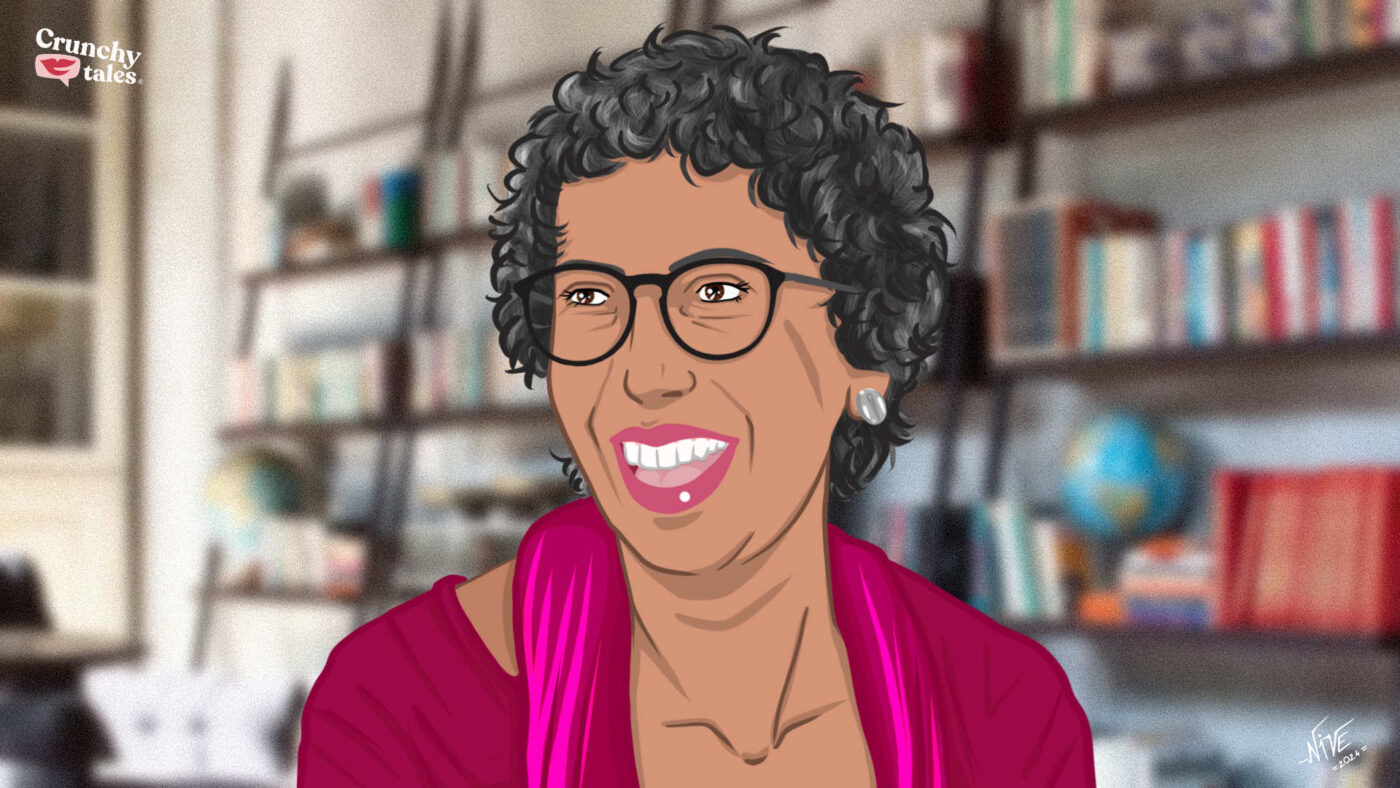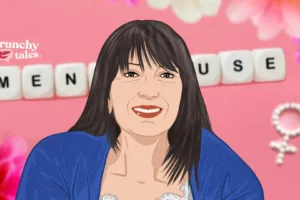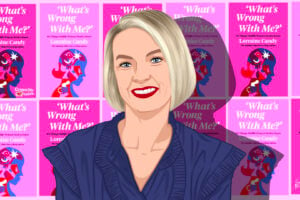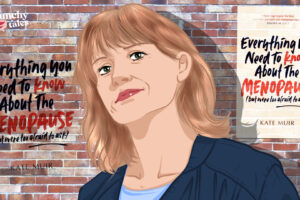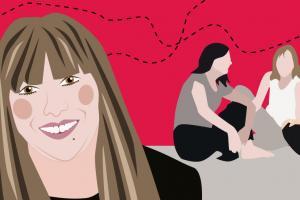Menopause Cafés: Rachel Weiss And The Power Of Having The Conversation
When counsellor and psychotherapist Rachel Weiss had the idea for the Menopause Cafés in 2017 and teamed up with Gail Jack and Lorna Fotheringham to hold the first one in Perth (Scotland), she didn’t know whether it would just be the three of them talking to each other, or if other people would join them. About 30 people turned up and talked, and asked for more gatherings.
Since then, the series of pop-up events have become a registered charity, with a growing team of volunteers who host meetings across the U.K., Canada and the U.S. bringing mid-life bloomers together, to break down barriers surrounding what they’re feeling and experiencing at this pivotal time in their lives.
Founder Rachel Weiss talks to Lorenza Bacino about the inspiration behind her idea and the impact it’s having on midlife women.
Rachel, how did it all begin?
Essentially, I was inspired by running ‘“Death Cafés” in my home town of Perth. Jon Underwood is the founder of the Death Café movement and I asked him if we could use his structure for a Menopause equivalent.
The point of these gatherings is to create a warm, welcoming, respectful place where people come and share their feelings about death, especially when grieving. Complete strangers can come and drink a cup of tea, enjoy some cake and talk about death. Death is such a taboo in our society and I felt the same about menopause – so I wanted to create the same sort of environment to enable people to gather and just talk about it. I’m also a counsellor and psychotherapist, so I knew first-hand the value of being able to talk about things in a safe, non-judgmental, empathic and authentic environment.
All through the different phases of life from getting my first period to my first pregnancy, and having a baby, I more or less knew what to expect. But menopause was a different ball game. No one was talking about it and the media wasn’t telling stories about it. I was essentially clueless. Half the population will experience this, and the other half are going to be impacted by it in some way, so I saw a gap and a great need here.
Can you tell us a bit more about how they’re structured and how we can join one of them?
Anyone can hold an event anywhere basically, just register on our website first. Talking about the menopause over tea and cake with friends or strangers is hugely beneficial and they’re simple and easy to run. We don’t set agendas as we believe topics will emerge organically.
We want anyone to feel welcome, so we include all ages and genders. And we don’t promote any products or courses of action as all journeys are unique. It’s safe to say what helps one person, may not help another. These events are free, in respectful, impartial environments and we listen to everyone’s perspective. They aren’t support groups but rather informal and empathic gatherings. Everyone’s voice is important. We encourage people to move around the tables to get a chance to talk to as many people as possible during the session.
If you want to hold one you’ll have to be prepared to take on a facilitator role, but we give you all the tips and advice on our website. You don’t have to be an expert on menopause, but you need to have people skills most of all. Our events are all pop-up and we’ve got about 500 volunteers worldwide.
What do you think about some of the initiatives surrounding how to manage the menopause at work? Recently Avanti West Coast gave out packs containing various items such as a paper clip ‘to hold it together’ and other seemingly jokey things.
On the whole, I think anything that raises awareness about menopause is a good thing and usually there is no such thing as bad publicity. But the Avanti initiative risked trivialising what can be – for some women – serious symptoms. I would say that media coverage tends to be negative and this is scaring women approaching menopause. They’re terrified of losing their minds, losing their jobs and having a generally bad experience. We know this isn’t the case for every woman. But for some, undoubtedly, more support is needed.
It’s like every woman who is pregnant: being afraid of having a complicated birth experience. Of course, bad things can and do happen, but not to everyone.
I believe we need some initiatives aimed at balancing this scaremongering exaggerated narrative. We need to hear stories from those women who sail through it with very few problems alongside those who find it challenging but find a way through it with help. Help comes in many different forms ranging from medication, to exercise, healthy eating and learning good sleep and relaxation habits.
I certainly don’t want women or their employers to assume that every person going through menopause suffers horribly as that’s simply untrue. The British Menopause Society research shows that 20% suffer badly, 20% sail through it and the rest of us fall somewhere in between.
How is your relationship with ageing? Do you have particular things you have done, either surrounding the Menopause Cafe initiative, or others, that have made you fulfilled?
I’m enjoying becoming an older woman. I’m more confident in myself and I care less what others think of me. It’s great actually. I focus on my own needs much more now compared with when I was bringing up children or building my career.
I’m enjoying slowing down, even though this is going against the habits of a lifetime. And I have taken up exercise, albeit rather reluctantly. I hate to admit that I’m even enjoying appreciating what my body can do and I’m investing time in maintaining it. I learned how our bone density decreases in perimenopause and post-menopause, so it’s very important to do weight-bearing exercises.
We did a sponsored Perth Santa Fun Run to raise funds for the Menopause Café charity when previously I only ran to catch a bus or a thief. I did the Couch to 5k programme to prepare myself and I still keep it up. I try and run 4k once a week.
I also want to mention how our Menopause Festival, #Flushfest, enabled me to realise that I wanted to practice slowing down and relaxing more. During lockdown, I took an online nature-bathing course which transformed the way I experience nature in my own garden or in my local park as well as on a grander scale on the Scottish mountains and coasts.
As Brene Brown says: “Fitting in is about assessing a situation and becoming who you need to be to be accepted. Belonging, on the other hand, doesn’t require us to change who we are; it requires us to be who we are”, and that really resonates with me as I age and I’m more open and accepting of my mixed-race heritage. I’m older, bolder and wiser. I have more self-compassion. I aspire to be a wise old woman!
The menopause cafés are open to all, so do you see many men show up?
Yes, as you say, they are open to all, and we want men to feel comfortable talking about this too. They’re a tiny minority in our cafés, but some come to support their partners or colleagues. Others come with their mothers and mothers-in-law. They tend to listen, as they come to learn how to support the women in their lives going through menopause. Some men host cafés themselves, and some events don’t have any men attending. It varies. But we’re open to all genders including trans men and trans women, non-binary, gender-fluid etc.
It’s also important to understand how for some women, it isn’t comfortable to talk about menopause in the presence of men, so this is why our format divides participants into small groups. Women can then choose tables they feel more comfortable in and we ask the men to remain seated at their tables to give women the choice of who they talk to.
Do you know any of the benefits women have had after attending an event?
Yes, I heard of a lady recently who attended a Menopause Café and she was feeling despairing and suicidal. She attended the next event and said speaking with others had been really helpful. That made me feel I’m doing something good. Another lady sat on the edge and didn’t join a table initially as she felt so anxious, but by the end of it, she’d found a table and was happily chatting and joining in. Clearly, these events are helping women to feel less isolated and alone and some of them are admitting that they are speaking about very intimate matters more with strangers than with friends!
What are your plans for the future?
We need to focus on fundraising this year for our core work of supporting hosts. I’m a volunteer, and we’ve recently taken on a 10-hour-a-week administrator to support the hosts. We need to raise 10K per year to pay her. Your readers can donate at www.menopausecafe.net via PayPal, Visa or Givey. We will be launching a branded range of merchandise later this year to raise awareness of menopause and of our charity, and to raise funds.
Like this post? Support Us or Sign up to our newsletter to get more articles like this delivered straight to your inbox!

